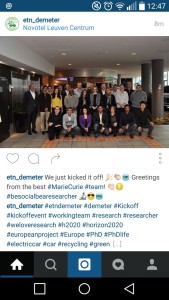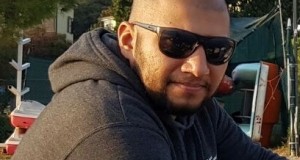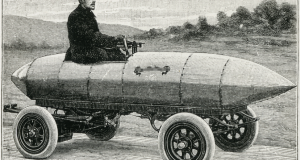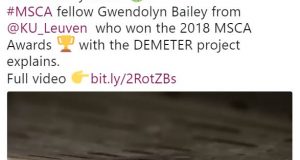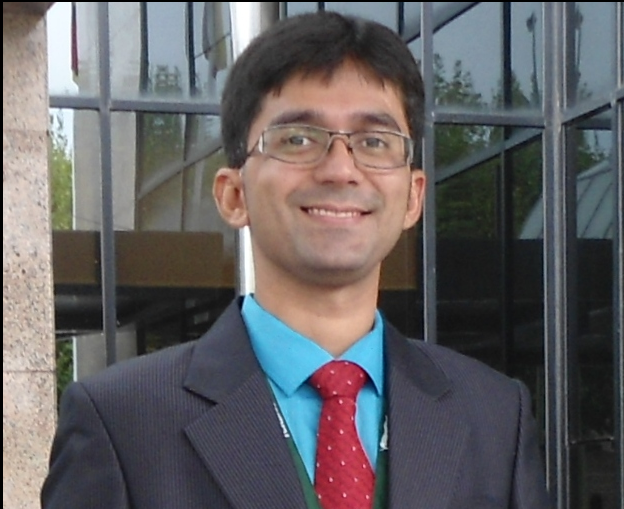AUTHOR: Martina Orefice
Are you a recent graduate ? Then this post is for you!
Are you a jobseeker with a high level of education? Then this post is for you!
Do you already miss your student life and wonder which job is for you? Then this post is for you!
Do you like being a lab rat but consider yourself also a creative entrepreneur? Then this post is for you!
Welcome to a new post from the ETN-DEMETER blog.
DEMETER is part of the “rare3” family (http://www.kuleuven.rare3.eu/), made up of several Marie-Curie European Training Networks, for short ETNs, specifically about metal recovery and green economy. This is a very big family: for each network, there are about 15 Early Stage Researchers, or ESRs, in addition to professionals from both academy and industry and it is still expanding. Two new projects, NEW MINE (http://new-mine.eu/) and SOCRATES (http://etn-socrates.eu/), were just approved and 30 new ESRs positions opened.
What exactly is an ESR? An ESR is not only a PhD student. The best way to explain the variations between a Marie-Curie career and a PhD student is to paint a picture using several anecdotes narrated by the voices of some ESRs .
Pranshu U., VALEO, decided to become an early stage researcher after a job in a company. Why such a change? He says: “I was working in an organization before becoming an ESR. I was aware of the industrial aspects of a research, and I wanted to accelerate my technical technological knowledge base, so that I could co-mingle the theoretical and practical aspects of research; therefore, I applied for the ESR position, to add more knowledge content into my profile. This knowledge comes from both a professional and a personal training : beneficiaries and partner organizations involved in the program, as well as the recruited ESRs, are from different domains and countries. It makes the program multidisciplinary, very dynamic and has good international exposure. The research topics are best-in-class and are technologically advanced , therefore providing a good challenge for the ESRs to excel in a new domain of science and technology. As for the organization, the structure of the program for the ESRs is pre-defined and streamlined, so there is clarity of work packages and their accompanying activities. The time frame of the funding is fixed and this puts a little pressure on the institutes to complete the PhD for the ESRs in the specified time schedule. Finally, last but not the least, a Marie-Curie scholarship is a renowned and prestigious programme, with a quite appreciable funding provided by the EU”.
Surprisingly , Pranshu is not the only one who wanted to enter into the research world after an experience in the industry. Arnab C., MAGNETI, Amit Khumar J., Grenoble, and Adolfo G., AAU, did the same. Usually these people choose to have a doctoral thesis within a company as well, but thanks to the unique structure of a Marie-Curie, they can integrate into the academy world as well, and they will have the same training as those who develop their careers in an university. The benefit is mutual: academy ESRs experience the other side of the coin, too. Such a combination is possible thanks to the training and the secondments that all the ESRs undergo . As for the trainings, they are planned every 6 months during the network events and they are about scientific and technical skills as well as about soft skills. The secondments are also planned to develop this dual nature in the researchers: everybody has to spend from 4 to 8 weeks in one of the partner institutes as well as in one of the partner companies. Fernando C., UoB, says: “Secondments are really a unique experience that let us discover new realities and get close to these more than ever before. It is also interesting that the intended deliverables are always different and tailored to benefit both the researcher and the host partner, taking in account also the time that one spends there. From some of the secondments, for example, the expected deliverable is a paper, more often just a report or even more incredible the deliverable can be “acquiring experience”. This allows one to fully enjoy the experience without the stress of any expected output, but can really enrich a lot your personal knowledge .” Getting in touch with the industrial world is what fascinated Anas E., MAGNETI: “In this way, you can really realise which is the difference between the industrial and lab scales. There are a plenty of difficulties to transfer an idea from the lab to the actual production. You also learn a new research method: I would say that there is, in the industrial production, a lack of accuracy compared to the one that you experimented during your thesis at the university”.
Choosing a PhD degree in an industry is the perfect combination for someone who wants to further his education, but at the same time is fascinated by the real job world. It gives you a new perspective of research, but it’s not completely dissociated from the university world, as Arnab C., MAGNETI, declares: “You may be right in saying that the worlds are not far away – it is true that there is an intimate connection. Industry must depend on academia for fundamental knowledge and development of technology. Industry must, however, deal with the problems of economic mass production, of feasibility and cost vs. benefit. Something that academia may not need to deal with immediately. We have added industrial experience to the experience in academia that every other ESR has. Only our setting of experimental work is different – and matching what Anas said, it has slightly different expectations; also important is the broadness of parameters in processes that industry uses.”
“What surprised me during the recruitment event was the priority given to women. Many people would agree that usually men have more job opportunities in the field of science and technology. DEMETER connects people of different educational and cultural backgrounds in an environment, where everyone contributes his or her unique character and knowledge. It is nice to work in such a diverse team, because I think that performing excellent research is more a question of professional approach and persistence, not a matter of gender.” affirms Simona S., KU Leuven. She refers to the gender balance policy applied in this, as well as, in the other Marie-Curie projects: it is not just by chance that the programme’s namesake is from the first female Nobel Prize winner and the one of the two people in the world who has received two Nobel Prizes.
Another interesting aspect of the ETN is the importance given to outreach communication. The central role of communication is outlined through two parallel paths: from one side, ESRs are formally educated = on how to enhance their communication skills by soft-skills trainings as “The art of writing academic papers” or “How to communicate science to the general public?” just to name a few m.On the other hand, , ESRs are challenged to actively communicate to the public through a blog, a website and even social media.
It may be hard to believe but one of your tasks as ESR is…being the managerr of a Facebook or Twitter or Instagram account! The person responsible for each social media is selected according to the researchers’ attitudes, so that everybody can express the same idea with the language that is more compliant to himself or herself. Gwendolyn B., KU Leuven, chose to become an ESR for this reason: “For my personal opinion, I think the purpose of becoming an ESR is to be able to think about complex subjects but, at the same time, to be able to communicate them in an accessible, digestible manner. My promoter, Karel van Acker is someone who does this very well. And I joked with him once that I’m in this training program to become a version of him!”
Have you ever thought to be part of a video during your PhD? This happens if you are part of an ETN in the rare3! The DEMETER team is preparing their own promotional video and one of the ESRs that took part in it, Yueting D., KU Leuven, commented so: “I participated in the movie making of the DEMETER project in our lab. It is really a great time, and I found that science should be not only explored in the lab, but also shared and communicated with other people. Especially when you talk with other people who have different backgrounds, the words and methods you choose to express are really important. Thus, in our DEMETER project, how to use the easy words to tell a good story of our research to the public has been a truly challenge for us. But let’s see!”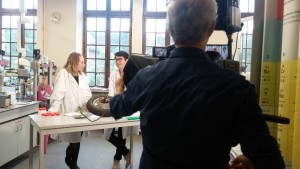
“Being a PhD student is in any case is a good opportunity to travel and discover the world, but being an ESR is even better in this sense! Every 6 months we have a network event: this means that every 6 months we visit a new city and get in touch with a new culture. During our secondment, we spend several weeks in a different country. This is a good chance to discover not only the country itself but also the neighbouring ones and to acquire a deeper knowledge of Europe. The fact that your guide will be the ESR(s) working there is also very fun and enjoyable. When all the others ESRs came to Leuven for the Kick-Off event, it was so nice for Simona and I to show them what is special in “our” city. For instance, where is the best place to have a beer or a pizza…and so on! Does not this satisfy yet your hunger (or thirst!) for travelling? You can even join meetings and summer schools from the other rare3 ETNs or general events,such as the unique Marie Skłodowska-Curie Actions satellite event (this year in Manchester)!”, these are the words from Martina O., KU Leuven.
Finally, every ESR is undoubtedly a researcher but moreover an early stage one. In other words, he or she is a young person with a great eagerness to learn, to build a professional profile, but also a great will to know him- /her-self and to make new friends…and a Marie-Curie ETN is an unique chance for this!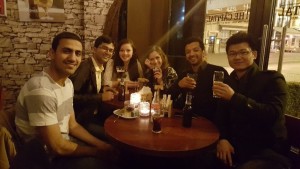
Are you still doubting about the importance of being an ESR? Hurry and visit the websites:
-http://new-mine.eu/,
-http://etn-socrates.eu/,
-http://ec.europa.eu/research/mariecurieactions/
…and check which ones are the best opportunities for you!
All my SINCERE THANKS to all my colleagues: Pranshu, Anas, Arnab, Fernando, Simona, Gwendolyn, Yueting, Xuan and Amit for your contributions to this article.

 European Training Network for the Design and Recycling of Rare-Earth Permanent Magnet Motors and Generators in Hybrid and Full Electric Vehicles (DEMETER)
European Training Network for the Design and Recycling of Rare-Earth Permanent Magnet Motors and Generators in Hybrid and Full Electric Vehicles (DEMETER)